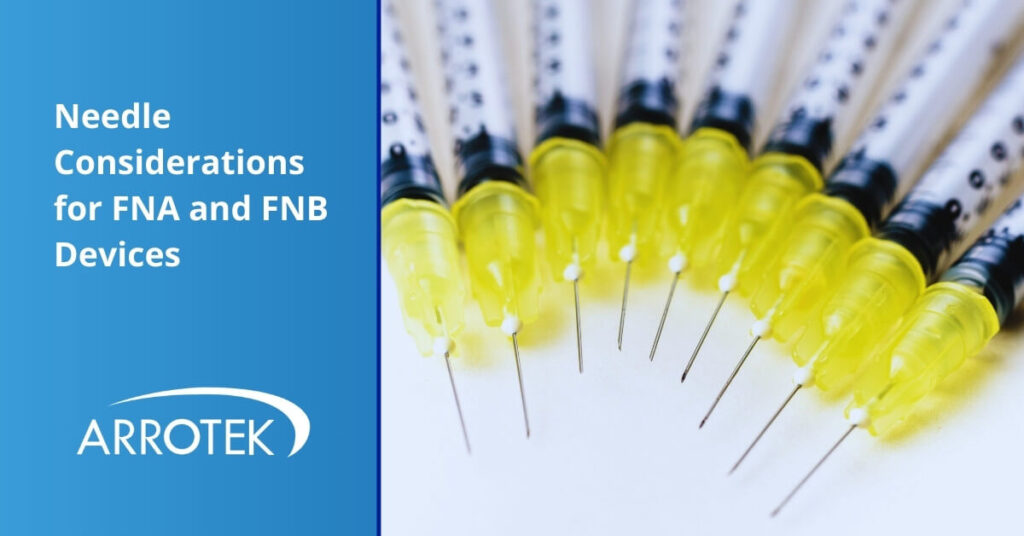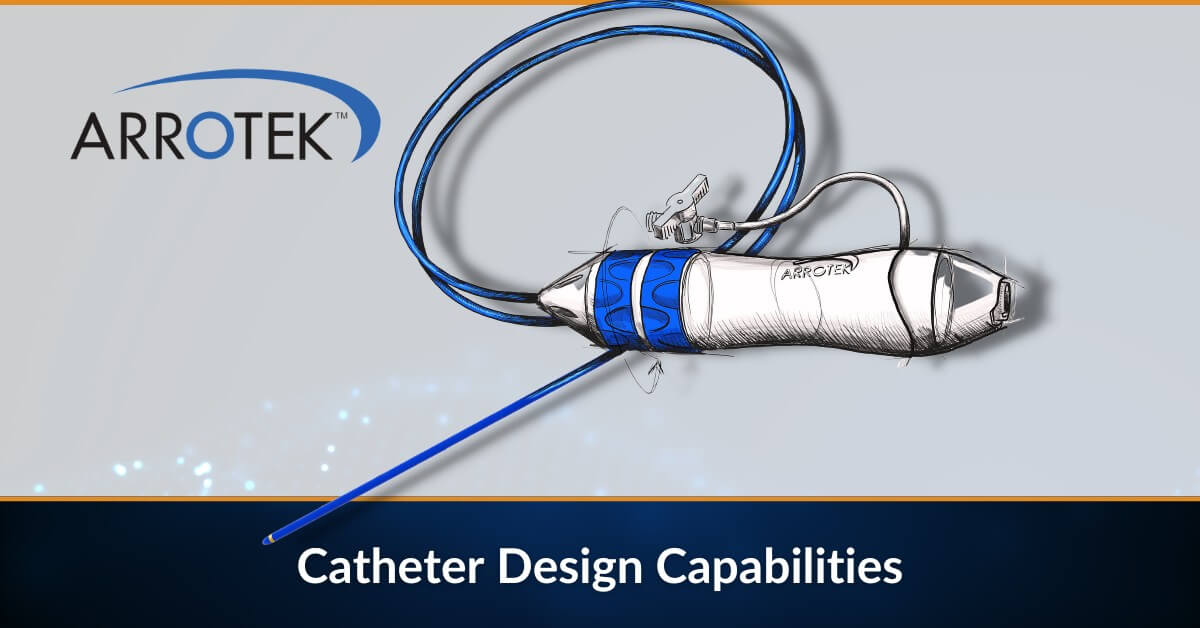
By Paula Johnson
While fine needle aspiration (FNA) and fine needle biopsy (FNB) are common procedures for the diagnosis of cancer, there is no specific device option that is the best choice in all situations. In fact, there is a large range of design and feature options available in both the FNA and FNB categories of needles. It’s important to consider these options when choosing an FNA or FNB needle for your requirements.
The location of the target sampling site, part of the body, and nature of the tissue being sampled are also important considerations.
Needle Requirement Differences Between FNA and FNB Devices
The purpose of FNA procedures is to aspirate fluid or tissue from the suspected cancer site. Thin and hollow needles are used as the objective is to get a cytologic sample with as many cells as possible.
The challenges that can arise with an FNA procedure include guiding the needle to the right area and withdrawing a sample that is sufficient for cytologic testing.
Obtaining an adequate sample is now more important than ever because of the advances that have been made in areas such as diagnostic medicine, molecular biology, and genetic sequencing. These new techniques and technologies increase the ability of physicians to accurately diagnose patients, but they are only effective when suitable tissue samples are obtained.
The success of the process that obtains a tissue sample during an FNA procedure largely comes down to the quality and features of the needle, in addition to the skill of the physician.
While both FNA and FNB are regarded as a type of biopsy, an FNA procedure is closer to a cytology test as it only removes small pieces of tissue as well as fluid from the target site. An FNB procedure is a truer biopsy as it removes a larger amount of tissue for diagnostic testing.
While the needles used in an FNB procedure are thin compared to standard needles, they are typically larger than the needles used in FNA procedures.
In both FNA and FNB devices, patient comfort is also a consideration, and it is important to minimize bleeding.
Considerations When Choosing FNA and FNB Needles
Needle Size
FNA needles are typically 22 gauge or smaller. FNB devices can have needles that are 25 gauge.
Larger needles are often required when taking samples from fatty lesions, dense fibrous tissue, or breast tissue. However, there is a balance to be struck as larger needles cause more bleeding. In FNA procedures, in particular, bleeding can dilute the sample which, in turn, makes accurate cytologic evaluation more difficult.
Thin-Walled Yet Stiff
As needles for FNA and FNB procedures are small gauge, they need to be thin-walled to maximize the space inside the core and ensure tissue sampling success. Stiffness is also an important design characteristic.
Needle Tips
There are three types of needle tips that are commonly used in FNA and FNB devices:
- Franseen tip – the Franseen needle tip is common on FNB devices as it provides an increased number of cutting surfaces. The three sharp cutting heels on a Franseen tip enable the collection of bigger tissue samples.
- Chiba – Chiba needles have a beveled tip, typically at an angle of 30 degrees, to create the cutting surface. This type of tip is most commonly used on FNA devices.
- Westcott – Westcott needles have a beveled tip similar to a Chiba needle. However, there is also a side notch that creates an additional cutting edge designed to aspirate more tissue.
Ultrasound Needle Guidance
In some procedures, the physician will be able to guide the needle to the target site by touch. For most procedures, however, ultrasound guidance is used to locate the target site and direct the needle to collect the sample.
To facilitate ultrasound guidance, FNA and FNB needles need to have echogenic tips.
Cannula Markings
Markings on the outer cannula of the needle provide physicians with a depth reference during the procedure.
Needle Stop
Both FNA and FNB needles benefit from needle stops to prevent the needle from moving past the target site.
Getting the Right Needle for Your Requirements
At Arrotek, we manufacture a wide range of needles suitable for FNA and FNB devices. This includes needles with Franseen, Chiba, and Westcott tips, plus we have extensive experience manufacturing small gauge, thin-walled needles. Get in touch today to discuss your requirements.





